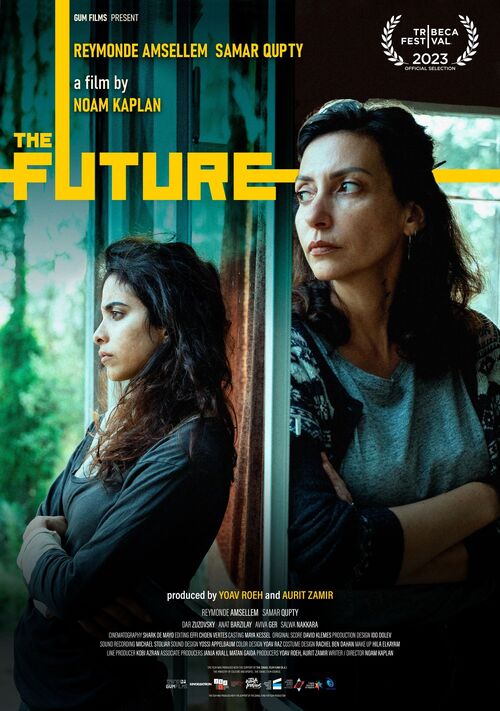Eye For Film >> Movies >> The Future (2023) Film Review
The Future
Reviewed by: Jennie Kermode

The history of criminal profiling is an interesting one. The concept has arisen several times in different eras and cultures, each time with methods attached which were hailed as revolutionary and virtually fool proof, a sure-fire way to identify the guilty, or at least those likely to become guilty. At a distance, it’s easy to see the flaws in each proposed system, not least the way that they were skewed in application by the personal bias of their users. This doesn’t bode well for the latest methods, based around computer algorithms, but nevertheless, they are being taken up with the same blind faith. This film looks at what happens when the developer of such an algorithm, Nurit (Reymonde Amsallem) tries to wrap her head around an attack which she didn’t see coming at all.
That attack was carried out by Yaffa (Samar Qupty), who is now in police custody. We first meet her in a hotel meeting room where she is reenacting the crime, explaining where she stood and what she said, how she came to be speaking to the Israeli Minister for Space and Tourism, and how they found themselves in the elevator where she shot him in the head. She is calm at this time, pragmatic and unashamed of her actions. Perhaps the real meaning of life in prison hasn’t yet sunk in, or perhaps it doesn’t seem substantively different from the life she previously had. The bulk of the film is concerned with Nurit’s attempts to discover her ‘true’ motivation, in the process coming to reckon with a lot of things which she had not previously seen for what they were.
Nurit’s situation is an unusual one. We first see her standing on a hillside, looking out across a crowded desert town and the Jews-only bridge which cuts across it. Through her binoculars, she sees an explosion taking place amongst the buildings. is this another terrorist attack? We will find out in due course. What we can see in the meantime is her absolute calm, her steely posture, her cultivated emotional distance. She’s a woman who is used to being rational and analytical, but all that is about to change. Over the same period of time that she’s conducting interviews with Yaffa, she’s undergoing hormone treatment so that she can harvest her eggs for a surrogate pregnancy. It’s a gruelling process which causes her to lose her balance emotionally, showing us some of the least pleasant aspects of her personality but, perhaps, also enabling her to relate to the world in a different way.
These tangled themes unfold over time in a film built around awkward conversations and observations of day to day life. Writer/director Noam Kaplan breaks screenwriting rules to show his characters performing actions which are normally filtered out of cinematic depictions: changing clothes, washing dishes, unloading shopping. Nurit buys sanitary provisions for Yaffa; Yaffa positions a hot water bottle to help with the pain in her back, even though they have spoken no words of sympathy for one another. This attention to detail, and the very precise performances by the leads, makes it easier for Kaplan to address the way that small things shape our understanding of ourselves and others. Yaffa tries to explain what it’s like to live, as a Palestinian, with constant Israeli microaggressions, some of which she is subjected to by Nurit herself. Nurit is still looking for some larger, triggering incident. The microaggressions faced by women also come into play in a story from which men are almost wholly absent.
In her interactions with her potential surrogate, the sunny and kind-hearted Maor (Dar Zuzovsky), Nurit has to make the most personally challenging prediction of her life, and it tests her confidence. Her decision will determine her personal future, but it also ties into themes around colonialism and the constant push for more living space, addressed elsewhere through an Israeli effort to land on the Moon which appears on televisions in the background. The future is a site of constant tension; the past full of decisions not the characters’ own which weigh down on them nonetheless. Yaffa speaks of the importance of an apricot tree passed down through generations. She reflects on the popularity, amongst Israelis, of flower names, like a wistful attempt to connect with a land not really understood. Nurit (whose name means buttercup) gives her gardening advice, but it’s far too late to use it.
Reviewed on: 13 Jun 2023
















